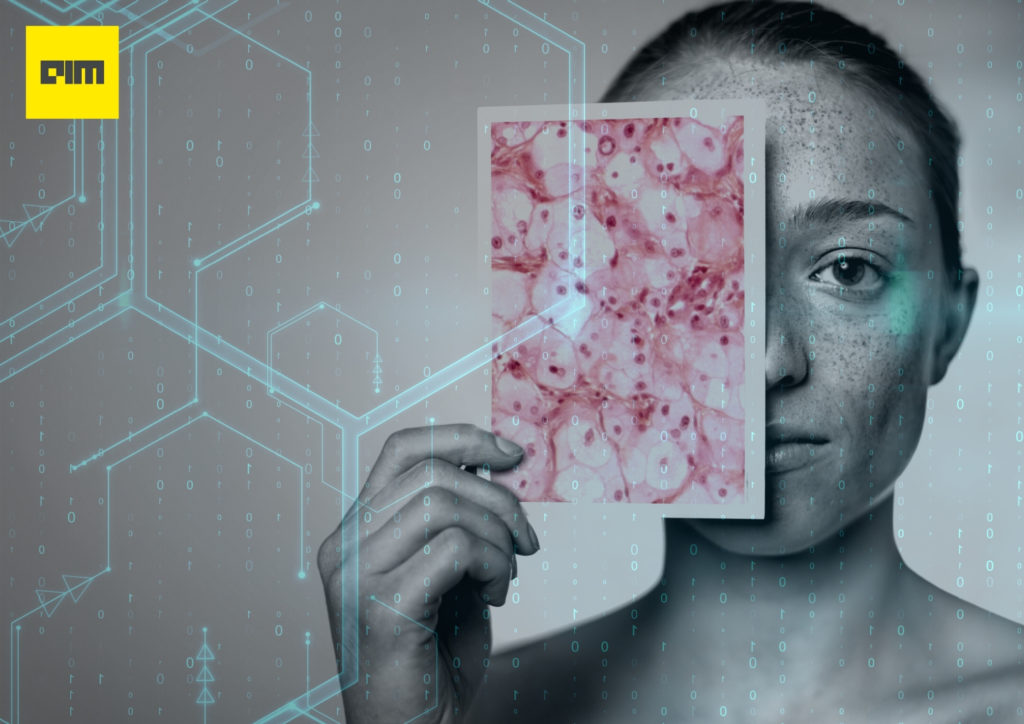In recent research, MIT scientists have come up with a unique AI tool to help in the early detection of skin cancer.
Traditionally, physicians had to examine suspicious pigmented lesions to identify any hint of skin cancer, which was not only time-consuming but also proved to be inaccurate, preventing the chance of early treatment. The US, in 2019, reported having diagnosed approximately 96,480 people with melanoma, which led to 7230 deaths. However, with this new research, scientists are claiming to solve the early detection issue of skin cancer with the help of artificial intelligence.
The scientists at MIT have developed an AI-powered SPL (suspicious pigmented lesions) analysis system to accurately assess the pigmented lesion on patients’ skin to detect the anomalies involved.
The Research
To facilitate the research, scientists leveraged wide-field images of patients’ skin, taken using any smartphone camera, and fed into deep convolutional neural networks (DCNNs) to analyse the suspicious pigmented lesions.
DCNNs can cluster similar parts of images based on the category thereby used for image classification. It then uses deep learning algorithms to further facilitate the process. The SPL system has been trained on “38,283 dermatological datasets collected from 133 patients and publicly available images” to detect and extract the pigmented lesions found in that image.
Yellow: consider further inspection; Red: requires further inspection or referral to a dermatologist.
According to the scientists, the result of the AI-powered system is displayed in the form of a heatmap, where the resultant yellow marks are selected for further inspection, and the red ones are referred to the dermatologist. Instead of the traditional process of evaluating every single lesion separately to look for the signs of neoplasia, the AI-powered SPL system identifies all the lesions and marks on the patient’s skin, flagging them in order of suspiciousness.
This process is a breakthrough for screening early-stage melanoma, a disease where the cells that produce pigment in the body are attacked by cancer. If it is not treated early, it can spread to the internal organs and eventually lead to death.
To evaluate the AI model, MIT scientists have worked with dermatologists to visually classify the lesions and compare the results with those produced by the system. It was noticed that the AI system achieved over 90.3% accuracy in distinguishing suspicious lesions from the non-suspicious ones without the cumbersome individual lesion imaging.
Wrapping Up
Luis R. Soenksen, the man behind this research, is an expert in medical devices and a vocal advocate of using AI to solve real-world problems. He firmly believes that early detection of suspicious pigmented lesions can help doctors save many lives lost due to skin cancer. He claims that this research is suggestive of the fact that with the assistance of computer vision along with deep neural networks, AI can achieve the level of accuracy in detecting melanoma that can easily be compared with expert dermatologists.
The research further claims that the new process can extract the intra-patient saliency of lesions that can compare the lesions on a patient’s skin with others. With this research, Soenksen hopes to achieve more efficient screenings of lesions within a primary care visit, which will not only improve patient triaging but will also manage the utilisation of resources in hospitals.
Read the paper here.





























